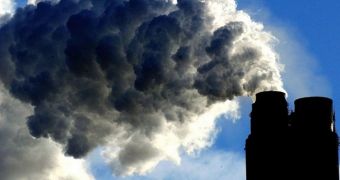Recent news from China says that, according to several local media reports, a social media site currently operating in the country has been a surprisingly busy bee these past few days.
To put it in a nutshell, the folks behind this site, dubbed Sina Weibo, have been censuring quite a lot of posts concerning air pollution.
According to Think Progress, the posts that they do not want to make it online are the ones belonging to people who cannot help but complain about the government's failure to deal with the ongoing air pollution crisis.
Otherwise put, Sina Weibo users can tell others about how the smog is hurting their eyes and making it very difficult for them to breathe, but they definitely can't point the finger at the government and type ill about it.
Of the posts said to have been subject to censorship on Sina Weibo, many included links to two different articles by China Central Television.
These articles made a case of how both the government and ordinary folks were a long way from properly tackling the ongoing air pollution crisis.
Other posts that got censored included references to a Shanghai Academy of Social Sciences report arguing that Beijing was unlivable because of all the smog hovering over it.
The same source tells us that the site accused of censuring posts criticizing the country's government is pretty popular in China. In fact, it's kind of like a local Twitter.
All things considered, it is unlikely that the people behind Sina Weibo decided to start censoring posts on their own accord. On the contrary, there are many who believe that the Chinese government asked them to do so.
Interestingly enough, news about how social media posts in China are subject to censorship comes shortly after it was announced that, according to evidence at hand, the ongoing air pollution crisis was not all that different from a nuclear winter.
As explained by specialist Scientist He Dongxian with the China Agricultural University, this basically means that the smog has high chances to affect both the country's agriculture and its food supply.
Reports say that, for the time being, about 70% of the power generated in China comes from burning coal. What's more, it is estimated that about one fifth of the air pollution that China is to blame for is the result of the country's producing noteworthy amounts of goods for export.
Specialists say that, unless measures to curb air pollution are implemented without delay, China will soon find itself dumping some 4 billion tonnes of carbon in the atmosphere on a yearly basis.

 14 DAY TRIAL //
14 DAY TRIAL //